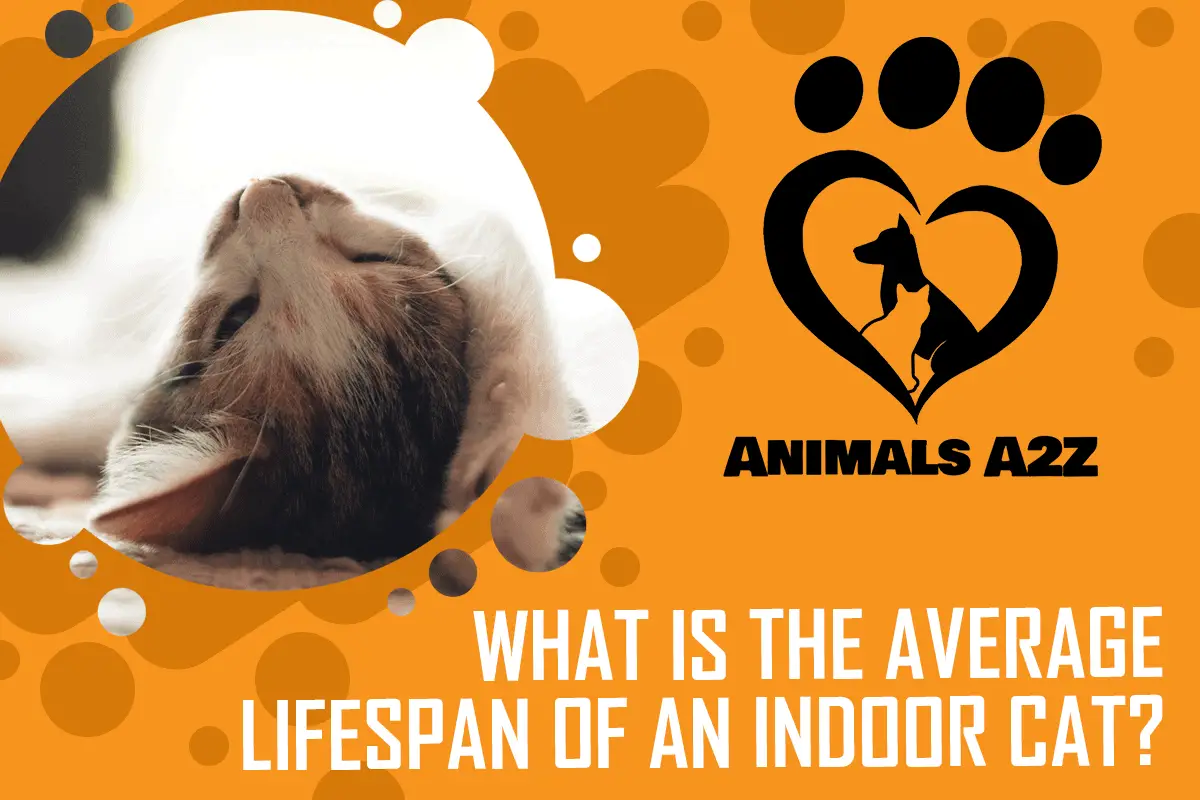Owning a cat isn’t only a major privilege, but it is also a very serious commitment and comes with great responsibility as a human cat parent. After all, these fluffy companions are breathing, living creatures. They need lots of care that range from constant feedings to regular vet appointments scheduling. Generally, indoor felines have much longer lifespans than outdoor felines do.
Table of Contents
The typical lifespan of indoor cats
If your kitty exclusively lives indoors, his typical lifespan ranges between 13 – 17 years, according to feline experts. However, it is also common for indoor felines to reach his 20th year. Most of the time, the lifespan of cats heavily depends on every individual feline.
Some cats even pass away before they reach 13 years of age, while others tend to live long past their 17th year. Having said that, many factors can go into how long your cat will live.
Does your indoor cat have insurance? Read about insurance for indoor cats here.
How Long Do Cats Live?
When you take a look at how long a cat lives, it is very important to distinct between indoor cats and cats that live in the wild. Even the difference between cats that live partly indoors, and the ones that from time to time run around outdoor.
Longevity advantages of indoor felines
Usually, an indoor cat’s normal life expectancy is a lot longer than that of cats of living outdoors part-time or full-time. This is because a cat who always stays inside the house is greatly protected from many dangers. For example, he will not be run over by vehicles, or he will not get into a conflict or fight with other cats in the neighborhood. Aside from that, hazardous weather will not imperil him as well and he will not be abused or snatched up by people. If your cat stays at home exclusively, he probably won’t catch any infectious disease like feline leukemia virus or rabies from a feral or stray cat.
The typical lifespan of outdoor cats
The typical lifespan of outdoor cats is nowhere near as long as the indoor cats. According to feline experts, cats who go outside often live for only 3 – 5 years. This is because the world outside is full of dangers that can put your cat’s life at risk such as creatures ranging from coyotes to skunks, and rock salts during the winter.
Factors to consider when caring for an indoor cat
Keeping an indoor feline happy and healthy for a long time heavily depends on many factors other than just keeping him inside. A balanced and nutritious diet for your cat helps a lot. Do not feed your feline friend table scraps and avoid giving him any food that’s proven to be toxic for cats. Chocolates and grapes are just some of the many human foods that can cause harm to your feline companion.
Frequent body and brain stimulation, like physical fitness sessions and interactive games, work wonders as well. Aside from that, bear in mind that routine vet checkups are very important, from his kitten months into his geriatric years.
How to keep your cat healthy and fit
There are lots of things you can do in order to help your cat live happily and healthily through his golden years:
- Provide a stress-free surrounding
- Maintain a healthy feline weight range
- Giving your cat a balanced diet suited to his age
- Regular vet check-ups that include physical exams
- Routine vaccinations
- Exercise – engage in moderate playtime regularly
- Be on the lookout for possible changes in your cat’s breathing patterns, appetite, lumps and bumps, coat quality, water intake, grooming habits, toileting habits, coughing, and physical activities.
Common questions about the average lifespan of an indoor cat
How long does the average indoor cat live?
Generally, indoor cats can live up to 12 to 18 years old. Many cats might also live up to their early 20s. In fact, the oldest reported cat has lived an amazing 38 years. Outdoor cats, on the other hand, live much shorter lives since they are more likely involved in traumas like a dog or other animal attacks and motor vehicle accidents.
What is considered old age for a cat?
Recently, feline life-stages and ages have been redefined. Now, felines are considered to be old aged the moment they reach 11 years of age, with senior felines defined as those aging between 11 to 14 years. Super senior cats, on the other hand, are those aged 15 years and more. When caring for older felines, it also helps to appreciate their feline age in human terms.
How can you tell if a cat is dying of old age?
Extreme weakness shows that your cat is probably dying because of his old age. If your feline friend is sick, even if you do not realize it entirely, he will become very weak since his body will try to fight off anything that’s causing his sickness. You may notice him sleeping more than he usually does.
What Can Affect A Cat’s Lifespan?
There’s a lot of factors that can affect a cat’s lifespan. Some of the things that vary between indoor and outdoor cats are their diet, the amount of exercise, and the risk of various diseases they can catch. Some are more common in outdoor cats and some for indoor cats.
Conclusion
If you have an aging feline companion, you definitely want to make sure that he lives a happy and long life. You should always take your cat to your trusted vet for routine health checks so that any sign of disease will be ruled out. Aside from that, vaccination is also very important so make sure you always keep in touch with your vet.


